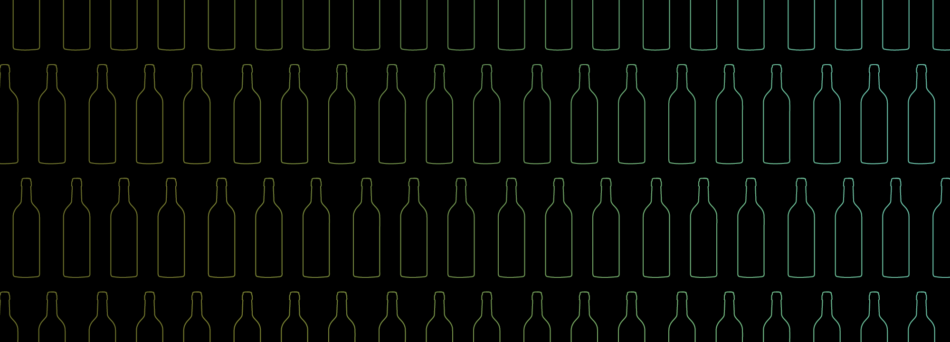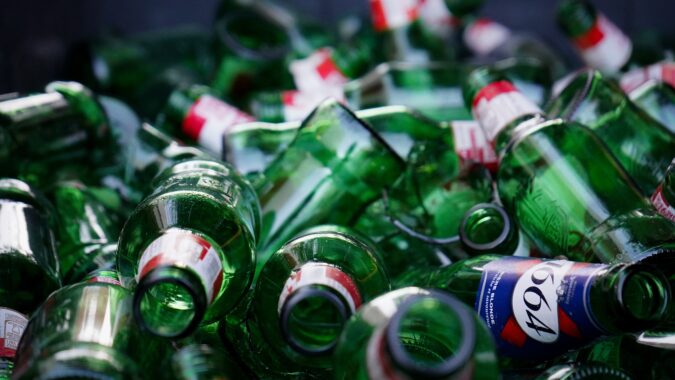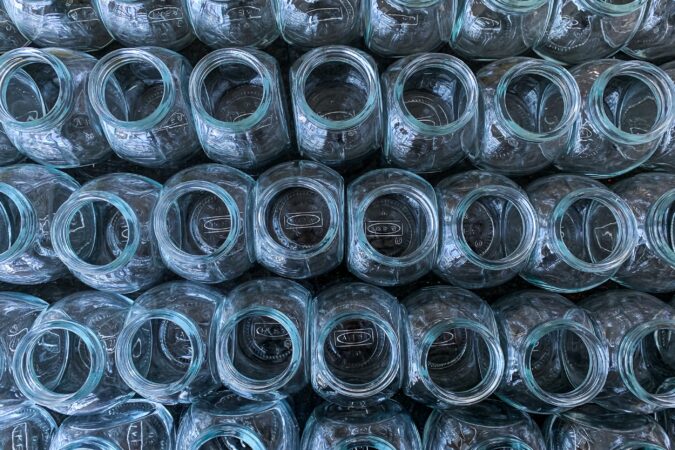Front vs Rear End Loaders
Need a big bin to store lots of commercial waste? Discover the difference between front and rear end loader bins to work out which is best for your business.

Recycling glass is easy, affordable, and essential for businesses of all shapes and sizes. It’s a material you can completely recycle again and again, so it should never end up in landfill. From glass bottles to windowpanes, whatever type of glass waste your business generates we can help you arrange collection and environmentally friendly disposal that meets your needs.
Behavioural change is a big way businesses can reduce their carbon footprint. Implementing glass recycling within your commercial operations contributes to a greener future. We’re experts in glass waste management and offer waste collections with free glass recycling bins for all businesses located anywhere in the UK. Call 0800 211 8390 today or contact us online for a fast and free quote.
Get a fast FREE quote for your glass waste
Our glass recycling services provide your business with glass bins, collection, and disposal services whatever your industry and company size. Due to the large amount of glass organisations use and dispose of, many businesses neglect glass recycling due to a lack of on-site storage facilities. We provide a range of glass bins, storage containers and collection schedules to eliminate this issue.
Our waste management providers are based across the UK, so we can provide your business with glass recycling wherever you’re based. We’re fully committed to reducing the impact excessive waste has on the environment. That’s why we offer new customers a free quote and free glass bins – you just pay for collection.
Whether you only need bottle collection or have a mix of broken windowpanes, jars or any other type of glass waste, we can help. We’ll provide waste management audits, collections, and recycling to ensure your business adheres to the relevant waste management regulations.
For further assistance, contact our helpful customer care team today. We’re happy to answer any queries you may have about glass recycling or bottle collection for your business, and we can also offer you a free quote on our services. Call us today on 0800 211 8390 or contact us online.
Glass waste should be stored in specially sealed and toughened glass recycling bins. They come in various sizes and you can mix glass waste types together or use as individual bottle bins. It’s best to order one glass bin for each colour of waste you have too – such as a separate bin for clear, green, and brown glass bottles and jars.
We offer a range of different glass recycling bins, starting at a standard 240-litre bottle bin. If you’re unsure of the sizes and number of bins you need, speak to our team and we can advise on the glass bin that suits your needs and how often it needs emptying.
Explore some of the most common glass recycling bin sizes and bottle bins available.
Many industries generate glass waste and require collection of their commercial waste. Some of the obvious ones are bars, hotels, and restaurants, which get through glass by selling food and drink. Turnover large establishments can be very high, and we can provide a flexible collection service after surveying your output.
Glass waste can be graded and sorted. The UK produces largely clear glass, and each colour of the glass is processed in a different way, to produce the cullet. If the glass is broken, you may need a specific collection procedure, which we’ll tailor when our expert team consult with you.
The main types of businesses requiring glass waste collection include:
It’s quick and easy to organise commercial waste collection for your business.
Simply start by telling us the:
We’ll provide you with a free quote.
When you’re happy with the type, number, and size of free bins, tell us when you need your bins delivering.
Let us know about any access issues where you want the bins delivering – such as locked gates, access codes and times. We’ll get you up and running in no time.
After the free bins arrive at your chosen location, fill them up with the agreed waste type.
Make sure you remain within any weight limits for the specific waste type and bin size.
We’ll arrange waste collection at a time and frequency to suit you and the amount of waste you have.
Waste glass is simply any used or broken products made completely from glass that you can no longer use for their intended purpose. It could be anything from a broken windowpane to empty beer and wine bottles or jam jars. If your business produced it or used it and is throwing away, then it classes as commercial glass waste.
Glass waste covers a very wide area and touches almost every business in one way or another. Soe of the most common examples of glass waste within the commercial world can include:

There are different types of glass for different uses. The most obvious industry producing glass and related waste are glaziers. Frosted, patterned or straight glass may be used for windows, with offcuts and broken glass during the process commonly going to waste. Such glass may be toughened or tempered to produce a different strength or thickness.
Various types of glass are produced to meet different requirements. As such, they can have different chemical compositions. Some of the different types of glass waste can include:
Recycling glass reuses all the waste materials to create new products. Some glass is recycled to make new bottles and jars, whereas other types are used for purposes such as road surfacing, grit blasting and, filtering water. It’s always thoroughly cleaned at high temperatures to remove impurities and potential contaminates first.
The glass recycling process begins at home or work by using specific glass recycling bins or containers to store bottles and jars. Clean or rinse the glass and sort them into colours. Kerbside collection in the UK, usually by your local council services, is the normal option for recycling glass at home, which removes most glass waste from domestic premises.
Glass is sorted and rinsed, collected, and transported to recycling facilities where it’s processed and turned into new glass products. The general process for recycling glass:
Disposal of glass waste depends on the type of glass you need to recycle and whether it’s intact or broken. It usually follows the same process, you just might need to separate your waste glass into individual glass bins if you have glass bottles, windowpanes, and broken glass all to recycle at the same time, for example.
We can help with your glass waste management by surveying your needs on the phone or on-site. Whatever type of glass waste you have, we’ll provide recycling bins to store your refuse glass and arrange collection on a schedule that meets your needs. All you need to do is clean your waste glass and place in the relevant container or glass bin.
Our trained experts will take care of the rest of your glass removal. After collection they’ll transport it to a nearby glass recycling plant to be sorted, graded, and disinfected before it’s moulded into new products. This ensures you can focus more time and effort on your business with peace of mind that your glass waste is removed and recycled correctly.

Glass is one of the easiest materials to recycle. It takes a lot less energy to recycle glass than produce it, so it’s a huge way to reduce energy consumption in the UK. Unlike most other materials, you can recycle glass time and again, making it one of the most important recyclables in your waste.
Every UK household uses an average of 500 glass bottles and jars every year. Just one tonne of glass can make around 4,000 bottles and jars and recycling all of these saves around 385,000 tonnes of CO2 emissions a year – equivalent to taking more than 120,000 cars off the road. It’s essential that your business doesn’t waste such a valuable resource by failing to recycle glass.
According to The Department for Environment, Food & Rural Affairs (DEFRA) the UK has a glass recycling rate of 76.5%. While this sounds high and is one of the best recycling rates for any packaging material, DEFRA aims for this number to improve steadily as glass is 100% recyclable.
Aaron was very helpful and responsive after a collection was unable to happen through no fault of theirs. Another collection date was quickly arranged and he also arranged a second bottle bin for us in a timely fashion.Victoria
Yes, all glass jars and bottles can all be completely recycled, with no waste parts left. Brown, green, and clear glass can easily be separated for collection. It’s then taken to a recycling facility where it’s treated and then the glass elements are fully melted down and reused to make new products.
Glass is infinitely recyclable, meaning you can reprocess and reuse it time after time without losing any of its initial quality. Use it, wash it, melt it down, create new glass, and use it again endlessly – the cycle continues. This also uses less energy compared to creating new glass from scratch, so it’s essential you recycle glass whenever possible.
You can recycle any type of glass bottle, whether it contained wine, beer, soft drinks, olive oil, or any other liquid. To recycle glass bottles:
Making glass bottles and jars always takes energy. Yet it requires far less when you recycle existing bottles and jars, instead of making them from scratch. Millions of tons of glass are recycled every year, purchased by companies to be melted and made into new glass products.
Melting existing glass can be done at a far lower temperature than you need to melt the raw materials to make new glass – which saves further energy. It’s possible to buy the raw materials required to make new glass. However, it is a more complex process for many companies to complete when compared with melting and reusing existing glass items. That’s why recycling glass makes good sense.
It’s great for the environment. Estimates show it could take a million years for a glass bottle to break down. Glass bottles and jars sent to landfill take up unnecessary space, lead to wasted energy and mean these products cannot be recycled. Yet glass is one of the easiest products to recycle, thanks to its components and the ease with which it can be done.
Most glass products contain a huge percentage of recycled glass. Fortunately, it’s easy for us all to do our bit to increase that percentage still further.
Glass is made from heating sand to an extremely high temperature with ash and limestone and then shaping it. Because of the immense heat required to produce glass from sand, recycling it reduces the carbon output from the get-go. Glass can be melted down and recycled multiple times.
The glass in your windowpanes is different from that in bottles and jars, as it’s treated differently using heat and various chemicals. You can still recycle glass windowpanes though, often to make new windows or a powder for concrete and cement. Place it in a special, separate glass bin for disposal.
It will be taken to a glass recycling plant where it either follows a similar glass recycling process to bottles (melted and remoulded into new windowpanes) or is crushed and added to bulk up cement. This must be done separately to other glass types as when windowpanes are melted they release chemicals, which cause an issue for glass bottles and jars used to store food and drink.
Businesses must arrange commercial bottle collection by licensed waste carriers to get rid of old bottles from their premises legally. The old bottles should be stored in separate bins on-site depending on their materials – normally in plastic or glass bins. After the bottle collection, they’re taken to a waste management facility for recycling.
Households can dispose of plastic drinks bottles in their domestic recycling bins. You should take any glass bottles to a nearby bottle bank to recycle. Other options for old bottles include reusing plastic bottles as drinks containers, using them as measuring cups, or for storing paint brushes and art supplies.
Get a fast FREE quote for your glass waste
Need a big bin to store lots of commercial waste? Discover the difference between front and rear end loader bins to work out which is best for your business.
Moving house is exciting and offers an opportunity to get rid of lots of rubbish. Use these tips to clear your home and dispose of rubbish responsibly.